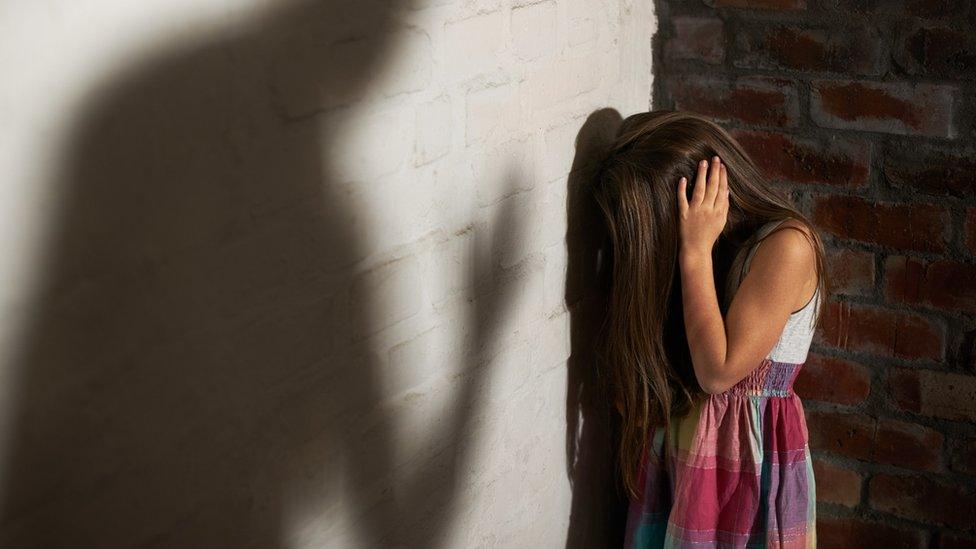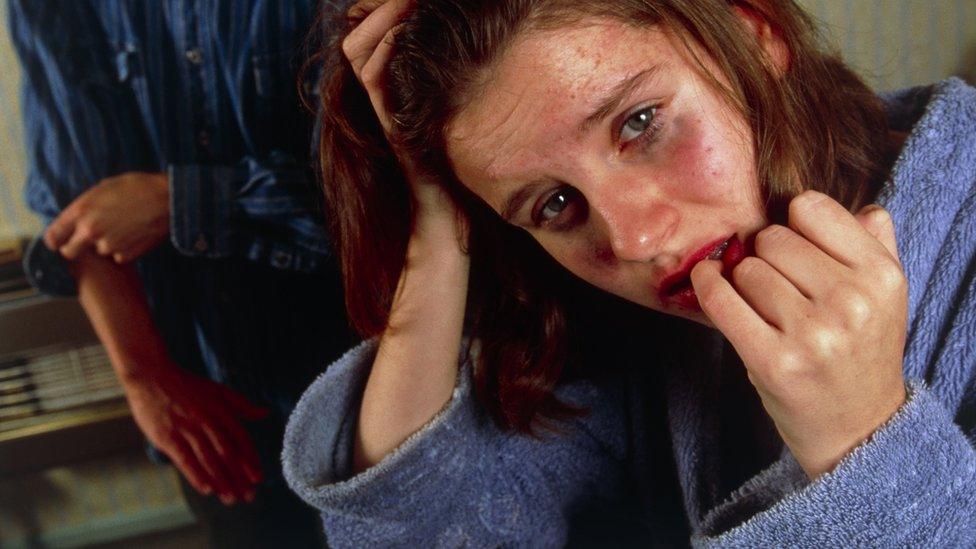'Same roof' crime payouts could total £126m
- Published
A woman whose case forced a change in the law explained why she challenged it
Up to £126m may be paid out to victims of violent crime who were assaulted by people they lived with before 1979, a government assessment says.
It follows a decision to abolish a 55-year-old law which prevented people who lived under the "same roof" as their attacker from claiming compensation.
It is thought as many as 7,500 victims could now apply for financial redress.
Ministers says they are committed to helping victims rebuild their lives.
The Criminal Injuries Compensation Scheme provides state funded compensation to victims of violent crime in England, Wales and Scotland.
But under its "same roof" rule, compensation was not paid if, before 1979, the victim and assailant were living together as members of the same family at the time of the attack.
The rule was originally designed to ensure perpetrators did not benefit from compensation paid to their victim.
However, it massively disadvantaged, for instance, child victims of sexual abuse who had no choice about where and with whom they lived.
The rule was changed in 1979 to allow people to gain legal redress for being abused by someone they lived with, but it was not made retrospective.
This meant that those abused after that date received money, while those abused before it got nothing from the Criminal Injuries Compensation Authority, external (CICA).
In July 2018, in the case of JT highlighted by the BBC, the Court of Appeal decided that the "same roof" rule had unfairly denied a woman abused by her stepfather, from the age of four to 17, the right to compensation.
The government chose not to appeal against the judgment and confirmed that the rule would be removed.
In February ministers laid a statutory instrument before parliament scrapping it.
'Huge scale injustice'
In its assessment, the government has estimated the number of people refused compensation under the rule and who can now reapply, together with those applying for the first time.
Individual payouts could be between £16,500, and £22,000. However the numbers of applications and compensation could be considerably lower depending on how many of those refused choose to re-apply, and how many victims decide to apply for the first time in the knowledge that the rule has been abolished.
Of 350 applications refused over the past five years by the CICA relating to the "same roof" rule, 94% relate to sexual abuse against a child.
Solicitor Paul Cain, of Hudgell Solicitors, a legal firm which supports abuse survivors through the CICA process, says the numbers being predicted by the Ministry of Justice and CICA highlight the "huge scale injustice" of the past five decades.
"We are talking about people abused at the most vulnerable time of their lives as children, and then being left to try and deal with what happened to them for the rest of their lives, without ever being given the option of legal redress that others have rightly had for the past 40 years," he told the BBC.
"These cases are all harrowing and made all the worse by the fact the people we are representing feel they have been let down firstly as children and then again as adults," he said.
About 4,000 applications have been refused under the "same roof" rule since 1964, and the CICA expects 70% of those cases to now result in payments being awarded should those people reapply.
There could be as many as 3,500 new applicants coming forward now that the rule has been scrapped. There are also more than 200 live cases currently with the CICA which previously may have been rejected under the rule.
In a statement the Ministry of Justice said: "Whilst no amount of compensation can make up for the immense suffering endured by victims of violent crime, we are committed to ensuring that they receive the help and support needed to rebuild their lives."
The authorities in Northern Ireland are currently reviewing a similar policy affecting crime compensation - known as the "same household" rule.
- Published28 February 2019

- Published9 September 2018
